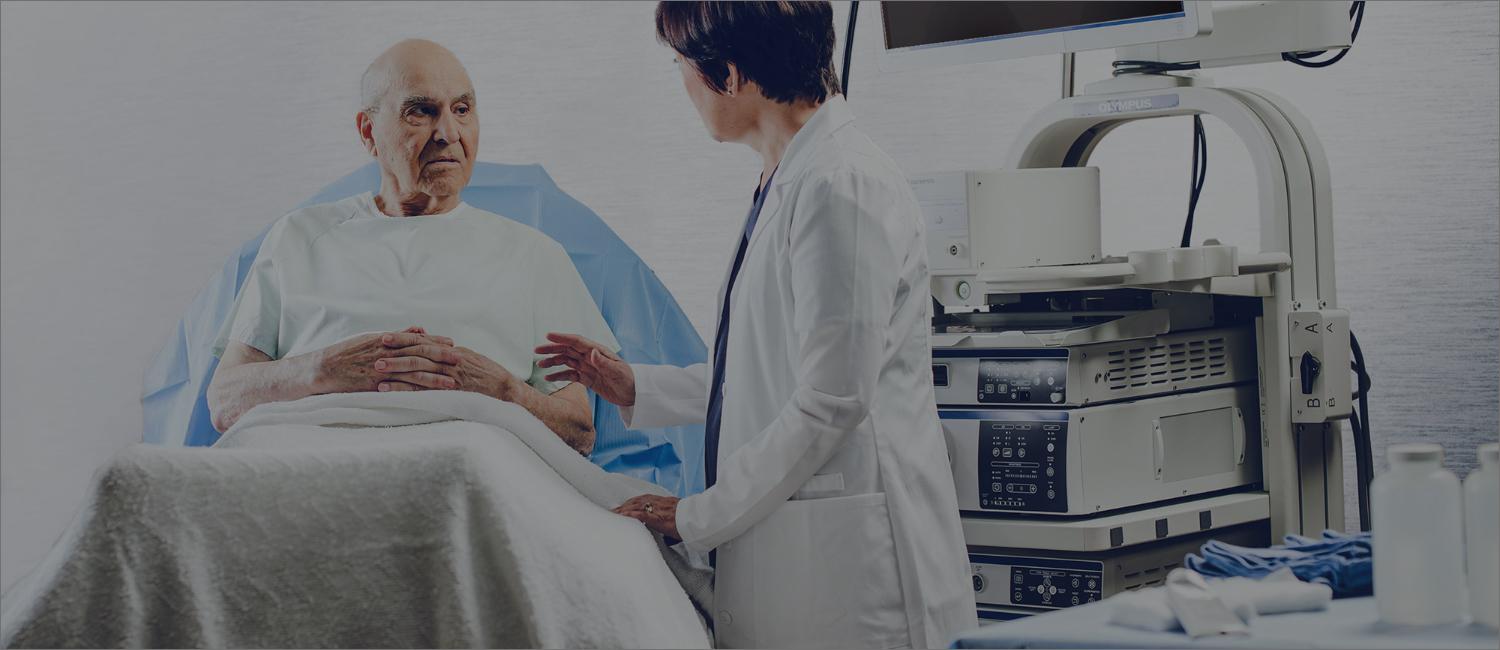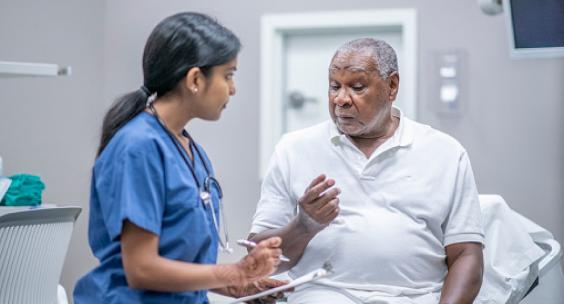Colon cancer is the third most common type of cancer in the United States, though it is one of the most preventable. Colon cancer is also the second leading cause of cancer death in men and women combined in the U.S. Each year, 140,000 people are diagnosed with colon cancer, and over a million people have a history of colon cancer.1
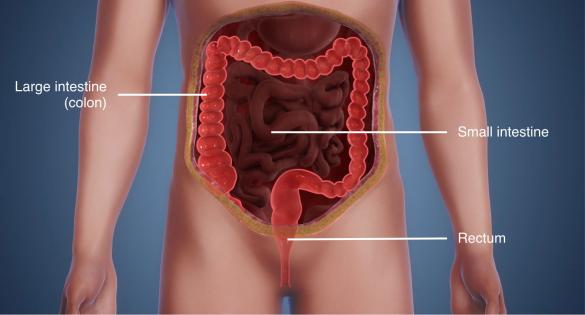
Colon cancer refers to cancer in the colon and/or rectum, or both. The rectum is the passageway that connects the colon to the anus. Most colon cancers develop first as polyps, which are abnormal growths inside the colon or rectum that may later become cancerous if they are not removed.1
Most colon cancers start as a growth on the inner lining of the colon or rectum. These growths are called polyps.
Some types of polyps can change into cancer over time (usually many years), but not all polyps become cancer. The chance of a polyp turning into cancer depends on the type of polyp it is.2
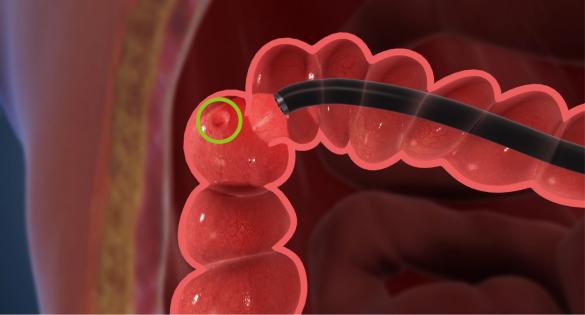
Types of Polyps
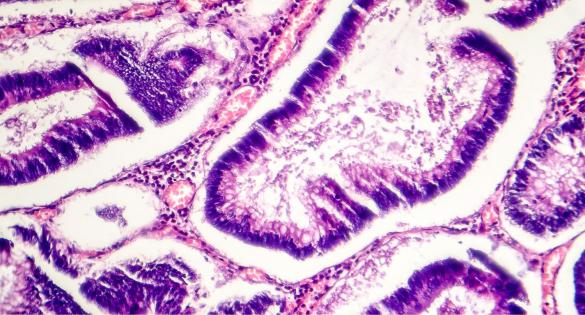
Adenomatous polyps (adenomas)
These polyps sometimes change into cancer. Because of this, adenomas are called a pre-cancerous condition. The 3 types of adenomas are tubular, villous, and tubulovillous.
Hyperplastic polyps and inflammatory polyps
These polyps are more common, but in general they are not pre-cancerous. Some people with large (more than 1cm) hyperplastic polyps might need colorectal cancer screening with colonoscopy more often.
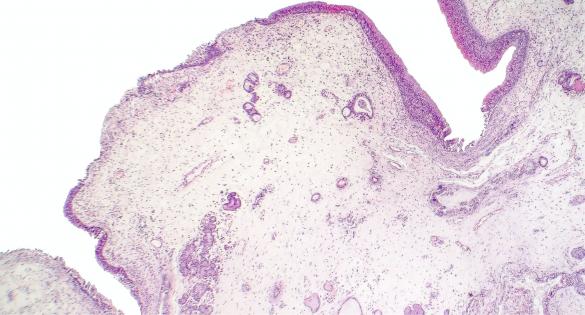
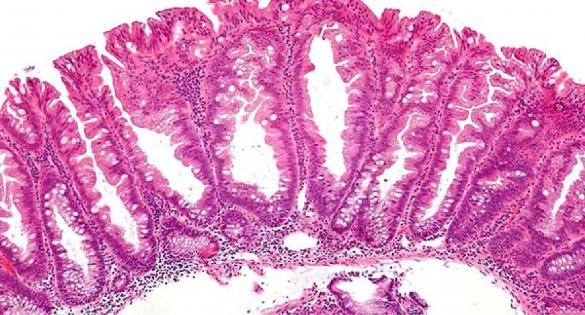
Sessile serrated polyps (SSP) and traditional serrated adenomas (TSA)
These polyps are often treated like adenomas because they have a higher risk of colorectal cancer.
Other factors that can make a polyp more likely to contain cancer or increase someone’s risk of developing colon cancer include:
- If a polyp larger than 1 cm is found
- If more than 3 polyps are found
- If dysplasia is seen in the polyp after it’s removed. Dysplasia is another pre-cancerous condition. It means there’s an area in a polyp or in the lining of the colon or rectum where the cells look abnormal, but they haven’t become cancer.2
For more details on the types of polyps and conditions that can lead to colon cancer, see Understanding Your Pathology Report: Colon Polyps from the American Cancer Society.
Colon Cancer Risk Factors
A personal or family history of colon cancer or colon polyps
Inflammatory bowel disease such as Crohn’s disease or ulcerative colitis
A genetic syndrome such as familial adenomatous polyposis (FAP) or hereditary non-polyposis colon cancer (Lynch syndrome)
Lack of regular physical activity
A diet low in fruit and vegetables
A low-fiber and high-fat diet, or a diet high in processed meats
Overweight and obesity
Alcohol consumption
Tobacco use
Colon Cancer Symptoms
Colon polyps and colon cancer don’t always cause symptoms, especially at first. Someone could have polyps or colon cancer and not know it. That is why getting screened regularly for colon cancer is so important.5
Many of the symptoms of colon cancer can also be caused by something that isn’t cancer, such as infection, hemorrhoids, irritable bowel syndrome, or inflammatory bowel disease.6 However, it is still important to be treated by your doctor if you are experiencing any of these issues.
Symptoms for colon cancer may include:
A change in bowel habits, such as diarrhea, constipation, or narrowing of the stool, that lasts for more than a few days
A feeling that you need to have a bowel movement that is not relieved by doing so
Dark stools, or blood in the stool (bowel movement) and/or rectal bleeding
Cramping or abdominal (belly) pain that don’t go away
Weakness and fatigue
Unintended weight loss
Diagnosing Colon Cancer
Colonoscopy is able to detect early problems that could lead to colon cancer. Colonoscopy is the preferred test to detect and treat colon cancer, while other screening tests can detect colon cancer with further follow up treatment required.
|
Pros
Cons
|
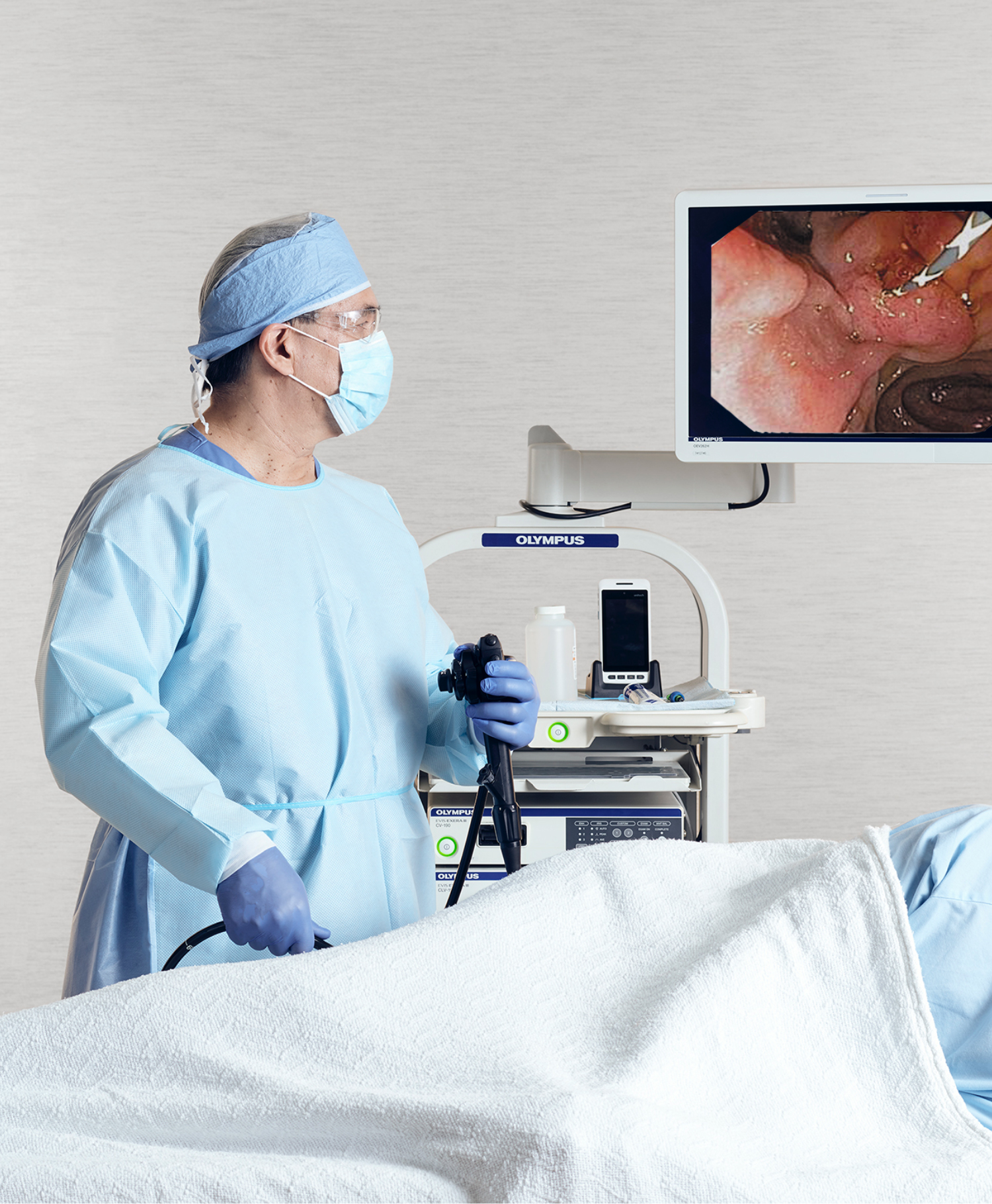
Other Testing Options
There are other methods of CRC screening. Your doctor can help you decide which test is right for you. Below are some of the pros and cons of these screening tests.
| Test | Pros | Cons |
|---|---|---|
| Flexible Sigmoidoscopy |
|
|
| Double-Contrast Barium Enema (DCBE) |
|
|
| CT Colonography (Virtual Colonoscopy) |
|
|
| Guaiac-Based Fecal Occult Blood Test (gFOBT) |
|
|
| Fecal ImmunochemicalTest (FIT) |
|
|
| Stool DNA Test |
|
|
Flexible Sigmoidoscopy
Pros:
- Fairly quick and safe
- Usually doesn’t require full bowel prep
- Sedation usually not used
- Does not require a specialist
- Done every 5 years
Cons:
- Looks at only about a third of the colon
- Can miss small polyps
- Can’t remove all polyps
- May be some discomfort
- Very small risk of bleeding, infection, or bowel tear
- Colonoscopy will be needed if abnormal
Double-Contrast Barium Enema (DCBE)
Pros:
- Can usually see the entire colon
- Relatively safe
- Done every 5 years
- No sedation needed
- Relatively quick
Cons:
- Can miss small polyps
- Full bowel prep needed
- Some false positive test results
- Can’t remove polyps during testing
- Colonoscopy will be needed if abnormal
CT Colonography (Virtual Colonoscopy)
Pros:
- Fairly quick and safe
- Can usually see the entire colon
- Done every 5 years
- No sedation needed
Cons:
- Can miss small polyps
- Full bowel prep needed
- Some false positive test results
- Can’t remove polyps during testing
- Colonoscopy will be needed if abnormal
- Still fairly new – may be insurance issues
Guaiac-Based Fecal Occult Blood Test (gFOBT)
Pros:
- No direct risk to the colon
- No bowel prep
- Sampling done at home
- Inexpensive
Cons:
- Can miss many polyps and some cancers
- Can produce false-positive test results
- Pre-test diet changes are needed
- Needs to be done every year
- Colonoscopy will be needed if abnormal
Fecal ImmunochemicalTest (FIT)
Pros:
- No direct risk to the colon
- No bowel prep
- No pre-test diet changes
- Sampling done at home
- Fairly inexpensive
Cons:
- Can miss many polyps and some cancers
- Can produce false-positive test results
- Needs to be done every year
- Colonoscopy will be needed if abnormal
Stool DNA Test
Pros:
- No direct risk to the colon
- No bowel prep
- No pre-test diet changes
- Sampling done at home
Cons:
- Can miss many polyps and some cancers
- Can produce false-positive test results
- Should be done every 3 years
- Colonoscopy will be needed if abnormal
- Still fairly new – may be insurance issues
Screening Saves Lives – Improved Detection Means Prevention
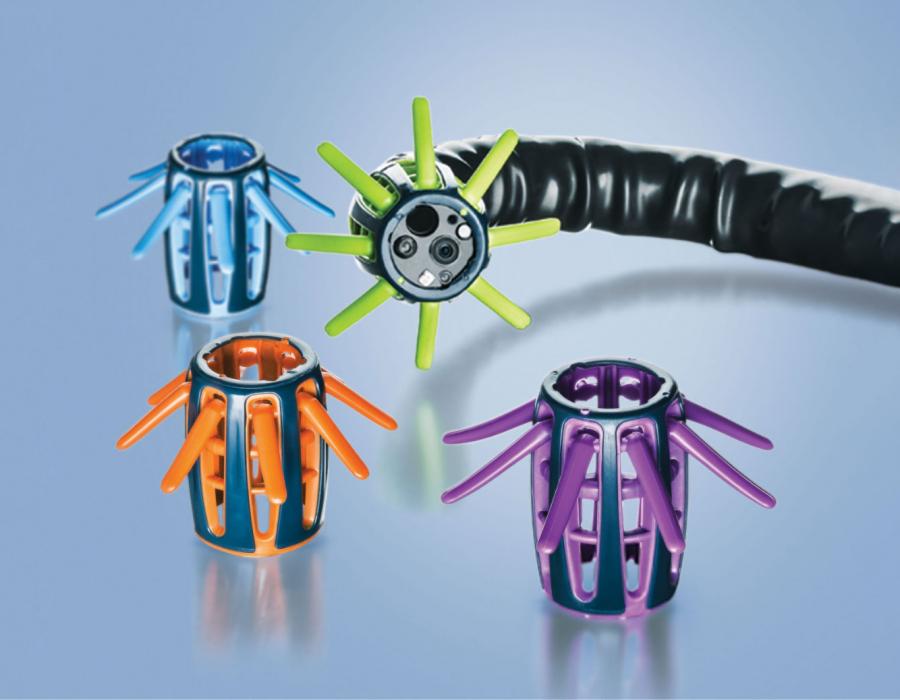
With new innovations available, advanced technology can be used to ensure an even more thorough, quality colonoscopy. For example, the product ENDOCUFF VISION® is a single-use device placed on the tip of a colonoscope with soft, flexible arms that flatten colonic folds to bring difficult-to-see areas behind the folds into view, where polyps are most commonly hidden and missed. To learn more about how ENDOCUFF benefits patients, click here.
|
Ask your doctor about ENDOCUFF VISION at your pre-colonoscopy appointment or over the phone prior to your procedure. Download Brochure |
How Healthy Choices Can Help You Avoid Colon Cancer
Colon cancer is the third most common type of cancer in the United States, though it is one of the most preventable. Each year, 140,000 people are diagnosed with colon cancer, and over a million people have a history of colon cancer.
These are certainly concerning statistics, but there is good news. By making healthier choices, 75% of all colon cancer cases can be prevented. By taking charge of your health, you can lower your risk of colon cancer. These healthy choices should help to ensure that you will be around for all of life’s greatest moments.
1. "What is Colorectal Cancer?" - Colorectal Cancer Alliance
2. "What is Colorectal Cancer?" - American Cancer Society
3. "What Are the Risk Factors for Colorectal Cancer?" - Centers for Disease Control and Prevention
4. "What Are the Symptoms of Colorectal Cancer?" - Centers for Disease Control and Prevention
5. "Do I Have Colorectal Cancer? Signs, Symptoms and Work-Up" - American Cancer Society
6. "Know the Facts" - Colorectal Cancer Alliance
7. "What Should I Know About Screening?" – Centers for Disease Control and Prevention
